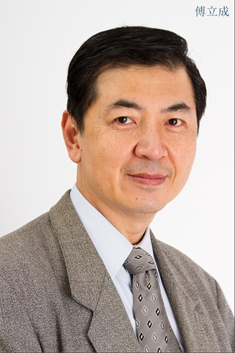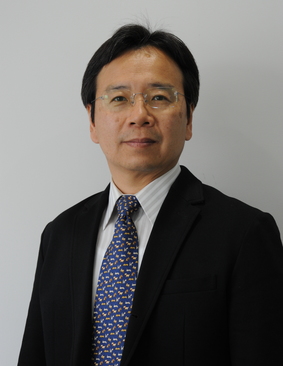Date and Place
September 1, 2014
Osaka International Convention Center (OICC), Osaka, Japan
Technical Talks
Banquet
Overview
Dependability is an essential measure of system ability to provide services such as availability, reliability, safety, security, and maintainability. This concept has been widely and usually used in design and analysis of information systems. Due to the recent integration of information and energy systems/infrastructures, its importance in Energy Management System (EMS) has increased drastically. In this current trend and future promising EMS, it is widely expected that the so-called "Dependable EMS" (D-EMS) offers a unified theory and technology to establish a cooperative distributed EMS for different domains. They include large-scale transmission grid with high penetration of wind power, mid-scale distribution grid operated by SCADA, and community/building energy systems. The main aims of this mini-symposium are (i) to provide recent results related to the D-EMS, (ii) to discuss its future direction with participants from different majors, and (iii) to make an opportunity of networking with oversea researchers for the future international expansion of the idea of D-EMS.
Program
15:00-15:10
Opening Remarks
15:10-16:00
Power Demand Side Management in Smart Community
 Professor Li-Chen Fu (National Taiwan University)
Professor Li-Chen Fu (National Taiwan University)
Abstract: The issues of energy conservation and carbon reduction have been discussed for years. Despite the increasing price of electricity, the residential power demand does not decrease correspondingly. The peak of electricity usage in summer is particularly high, continuingly hitting record high. The problems registered from human factors could be resolved by the power of science and technology, i.e., being capable of managing the energy demand at residences. With the support of next generation power grid, i.e., Smart Grid, Demand Side Management (DSM) is able to maximize the efficiency of provider’s energy generation and minimize the waste of customer’s energy usage to produce the best schedule of energy-involved activities for each home. It would be a win-win situation of benefit to energy providers and residents. For our DSM method, a schedule optimization method for both single home and community is developed. For residents, they not only can minimize their electricity cost but also can alleviate Peak-to-Average Ratio (PAR) of their total power consumption distribution. Minimization of electricity cost is achieved through optimal scheduling of daily activities, which simultaneously takes into account the distributed generation from Renewable Energy (RE) sources, the energy storage devices, and the dynamic pricing. In addition, an optimal PAR can be achieved via cooperation among multiple homes in a community. For energy providers, an optimal PAR can make the power system stabler, more dependable, and hence they benefit from the more balancing energy distribution and lower cost of energy generation.
16:10-17:00
Design of Cyber-Physical Energy Systems based on Reachability Analysis
 Professor John Koo (The University of Hong Kong)
Professor John Koo (The University of Hong Kong)
Abstract: Stringent regulatory requirements and advances in information and communication technology have enabled Cyber-Physical Energy Systems to change the ways in generating, transmitting and utilizing energy. The joint continuous-discrete dynamics that exhibits in the systems can be modeled in the framework of hybrid systems. Reachability analysis provides a quantitative way to analyze how system states of a hybrid system can or cannot be reached from an initial set. By encoding a given safety specification as system states, verification can then be conducted by performing the corresponding reachability analysis. Furthermore, the hybrid system can be synthesized to satisfy the specification via the reachability analysis. In this talk, we will provide a brief overview of reachability analysis and our recent works in this area.
17:00-17:45
High Resolution Simulation for Estimation and Prediction of Offshore Wind
 Professor Kazuhisa Tsuboki (Nagoya University)
Professor Kazuhisa Tsuboki (Nagoya University)
Abstract: High wind is necessary for wind-power generation. In Japan and its surroundings, a high wind condition is usually accompanied by convective clouds and it shows high frequency variation of wind speed. For example, convective snow clouds in the monsoon cold wind stream cause highly-fluctuating strong winds. Typhoons and mid-latitude cyclones also cause high winds in association with convective clouds. The variation of high winds caused by these atmospheric disturbances is very large in time and space owing to convective cloud activity. Consequently, a very high-resolution simulation is necessary for estimation and prediction of offshore wind power using a cloud-resolving model. To perform such a high-resolution simulation with explicitly-calculating convective clouds, we have developed a cloud-resolving model named the Cloud Resolving Storm Simulator (CReSS). A detailed cloud microphysics and an atmospheric turbulence are considered in the model. It has been used for real weather prediction with high resolution. In the present study, estimation and prediction of offshore wind power were performed using CReSS. The output data of calculations will be used for an estimation of offshore electric power generated by wind turbines. Moreover, the CReSS model could provide basic data for an energy management system experiment in a large area since it calculates solar radiation as well as wind speed in a domain including most Japan.
17:45-17:50
Closing Remarks
18:00-20:00
Banquet
Registration
All attendees must register by "August 22, 2014."
No fee is required for attending the technical talks of the mini-workshop,
while the banquet fee "JPY 6,000" should be paid by cash at the registration desk.
To register, please send an email to
t-wada@ist.osaka-u.ac.jp
where the email should contain the following information:
- Registration Category (Select one):
- Technical Talks and Banquet (JPY 6,000)
- Technical Talks only (JPY 0)
- Banquet only (JPY 6,000)
- Salutation (Select one): Mr. / Ms. / Prof. / Dr.
- Name: [First (Personal) Name] ([Middle Name]) [Last (Family) Name]
- Company/Organization:
- Mailing Address:
- City:
- Country:
- Email:
- IEEE Membership (if applicable)
Organizers and Sponsors
The organizers and the sponsors of this mini-workshop are the following teams in JST CREST Research Area "Creation of Fundamental Theory and Technology to Establish a Cooperative Distributed Energy Management System and Integration of Technologies Across Broad Disciplines Toward Social Application".
- Uyeda Team
"Development of a method to comprehend and predict wind conditions required for offshore wind-power generation"
Research Director: Hiroshi Uyeda (Professor, Nagoya University) - Zoka Team
"Basic theory and methodology development of highly accurate simulation technology for power systems incorporating device-level modeling of the applied power electronics"
Research Director: Yoshifumi Zoka (Associate Professor, Hiroshima University) - Sugihara Team
"Optimal operation of electric power systems as infrastructure based on fairness and rationality for all participants"
Research Director: Hideharu Sugihara (Associate Professor, Osaka University) - Susuki Team
"Dynamic analysis technologies for multi-energy systems"
Research Director: Yoshihiko Susuki (Lecturer, Kyoto University) - Fujisaki Team
"Dependable control of networked large-scale systems"
Research Director: Yasumasa Fujisaki (Professor, Osaka University)